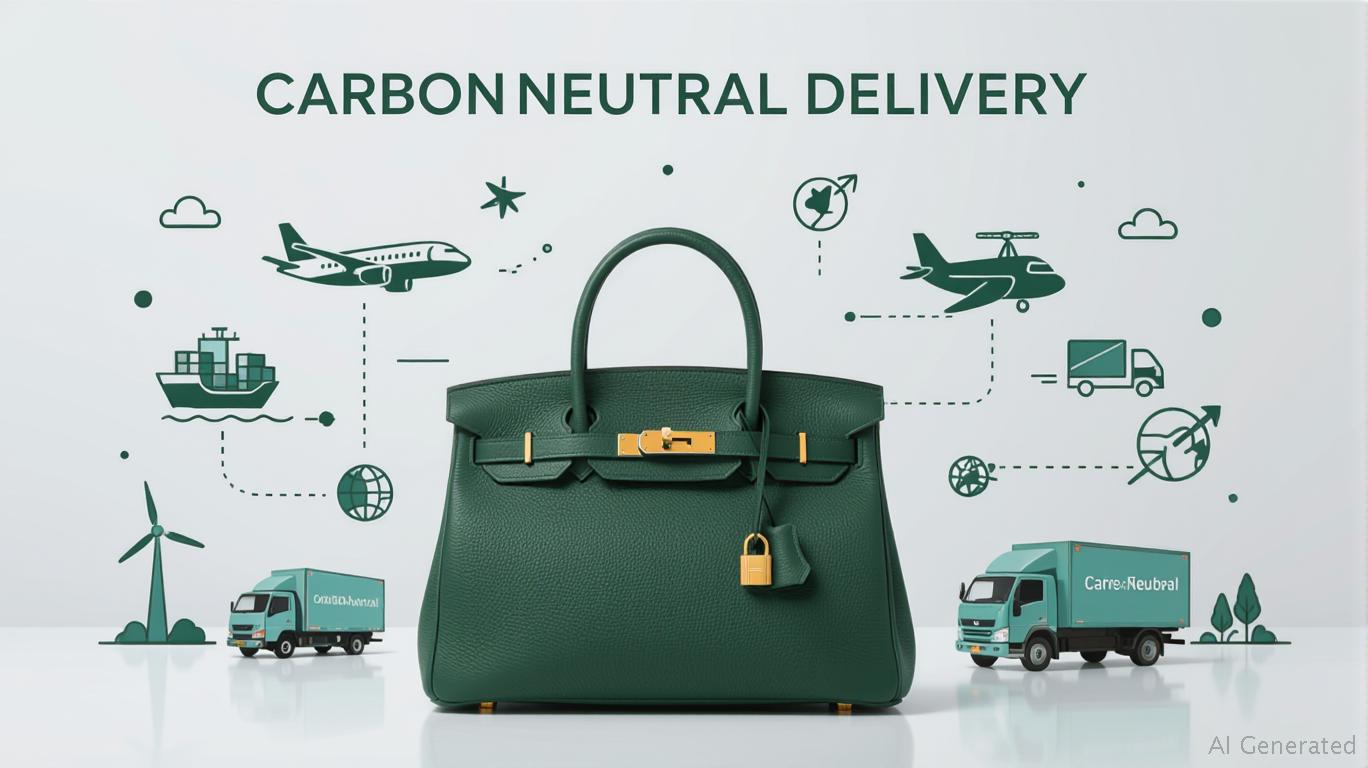Sustainable Luxury: How E-Commerce and Cross-Border Logistics Are Transforming Singapore's $4.45 Billion Market
Cyrus ColeSunday, Jul 6, 2025 6:19 pm ET
![]() 24min read
24min read
The luxury market in Singapore is undergoing a seismic shift. No longer confined to high-end boutiques and physical showrooms, it's being redefined by e-commerce platforms, cross-border logistics innovations, and a growing demand for . This confluence of trends is not just driving growth—it's reshaping how luxury brands operate, compete, and connect with a new generation of consumers.

Singapore's luxury goods market hit , with e-commerce penetration at —a figure set to explode as digital-native consumers dominate spending. The —where understated craftsmanship and sustainability trump flashy logos—has amplified demand for online platforms that prioritize authenticity and storytelling.
Consider this:
- and now offer luxury authentication services to combat counterfeits, while 's Singapore fulfillment center cuts delivery times by 30%.
- is the primary driver, with , fueled by apps like and , which are now essential for luxury brand engagement.
Singapore's strategic location and robust infrastructure make it a crossroads for , especially in high-value goods like art, vintage watches, and sustainable fashion. Key trends include:
1. : Platforms like and enable Singaporeans to access niche luxury items unavailable locally.
2. : The pre-owned luxury market is projected to hit , with Singaporean SMEs exporting authenticated goods via and .
3. : Real-time tracking and AI-driven route optimization ensure high-value items are delivered securely—a must for brands like or .
The ethos is inseparable from sustainability. E-commerce and cross-border logistics are enabling two critical pillars:
1. : Online platforms for pre-owned luxury goods cut demand for new resources. A shipped from Paris to Singapore via carbon-neutral logistics is both desirable and planet-friendly.
2. : Blockchain-backed supply chains (used by ) and carbon-footprint tracking tools build trust—critical for millennials and Gen Z, who spend $12,500 annually on luxury but demand ethical practices.
Conclusion: The Future of Luxury Is Digital and Sustainable
Singapore's luxury market is a microcosm of global trends: e-commerce is the engine, sustainability is the soul, and cross-border logistics are the arteries. For investors, the path forward is clear—back companies that blend cutting-edge logistics with ethical practices. The next decade will belong to those who master the art of quiet luxury in a connected, carbon-conscious world.
Investment Thesis: Allocate 5–10% of a growth portfolio to e-commerce logistics leaders and sustainable luxury platforms. Avoid pure-play brick-and-mortar luxury stocks; the future is digital.











